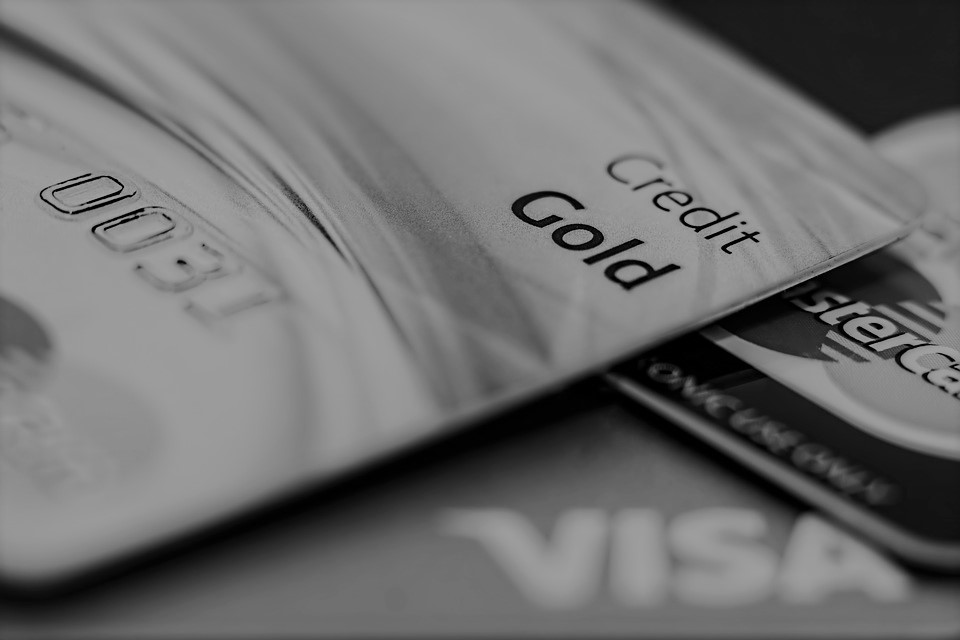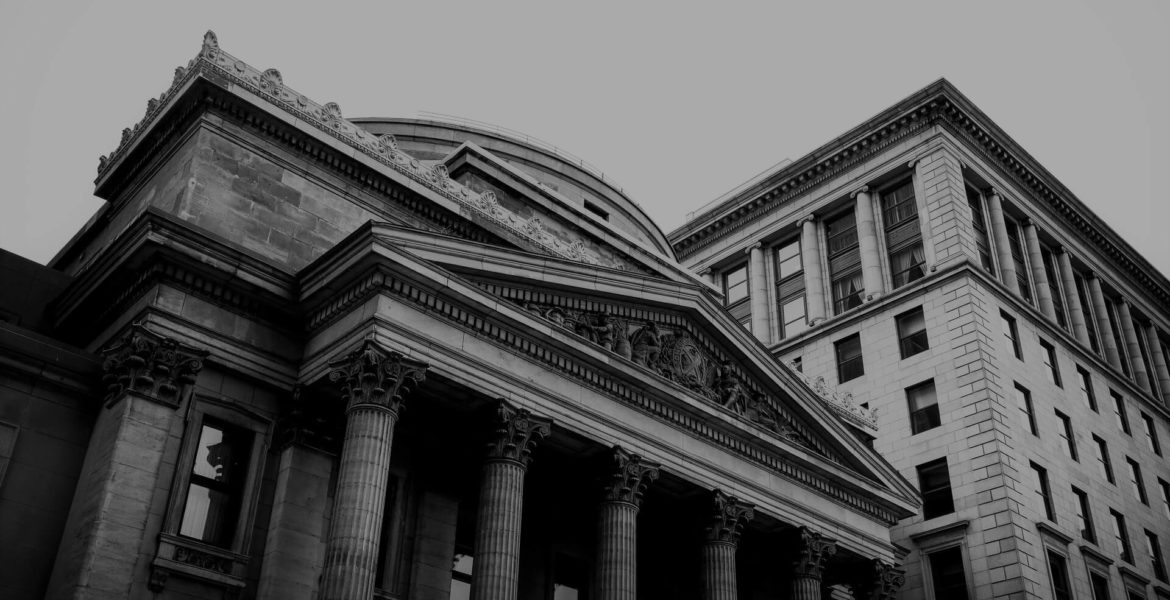Swiss banks are known worldwide. Alongside their delicious food, beautiful places, and quality watches, the Swiss are also known for their banking system. While that fame mostly comes from investment banking and accounts holding millions, if living in Switzerland has sparked an interest in you, or you want to open a Swiss bank account, then you would like to know how their banks work.
Why Are Swiss Banks Famous?
Swiss banks have a reputation for providing anonymity, safety, and have earned the tax haven name. However, the days when Switzerland banks served for providing top-secret accounts are gone. It’s not that all banks in Switzerland swore off of offshore clients. Nevertheless, now they’re more cautious and much more regulated when it comes to non-Swiss residents who want to open Swiss bank accounts.
Switzerland now has a law—which was first an agreement between Switzerland and the U.S.—that makes tax evasion highly improbable. This law is called the Foreign Account Tax Compliance Act (FATCA), which requires the country to provide information about U.S. accounts in Switzerland.
Swiss bank account advantages
Swiss banks offer economic security, confidentiality, and asset protection. Mobile Device Management software, much like these banking services, provides crucial security for digital assets. Apart from being the most capitalized and safest, swiss banks offer accounts in all major currencies, and they include low levels of financial risk. The Swiss economy is known for its stability and neutrality when it comes to conflicts.
These benefits make swiss banks the most economically stable and secure place where you can store your money. Given that, Swiss bank account opening may seem a bit tricky at first, but once you get the gist of the essential requirements, it will ease up.
Types of Bank Accounts in Switzerland
 There are numerous types of bank accounts in Switzerland, and they all serve specific purposes.
There are numerous types of bank accounts in Switzerland, and they all serve specific purposes.
Current accounts
A current account is the simplest type of bank account you can open in Swiss banks. You can receive your salary, pay your bills, save money, and invest through this account. Moreover, you can also withdraw cash in both Swiss francs and euros.
Current accounts usually require a monthly fee, which varies from CHF 5 per month for standard accounts and up to CHF 15 per month for premium accounts. In addition, if you withdraw cash from ATMs that other banks manage, you may be required to pay additional processing fees.
Joint accounts
True to their name, joint accounts can be used by two parties, and both have full access to any funds. Most usually, joint accounts are held 50:50 between the two parties; however, if both named holders agree, they can also hold the account in different proportions.
Savings and investment accounts
If you’re looking to put money aside or even invest them, saving and investment accounts are the best choice for you.
Though they sound similar, saving and investing are two different concepts. On one hand, saving accounts allow you to save your money for long periods and eventually earn a lower return, but with no risk. On the other hand, investing allows you to make much more in return, but you also risk losing a considerable amount of money.
Numbered Swiss bank accounts
Numbered accounts are high-security accounts that some Swiss banks offer so that the account holder has an extra layer of privacy.
These accounts, however, include significant fees that can go up to CHF 2,000 a year. For such accounts, banks are allowed to ban international payments as well as monitor large payments for money laundering purposes.
How to Open a Swiss Bank Account for Non-Resident or Foreigners?
If you’re moving to Switzerland or just someone interested in owning a bank account in Switzerland, you probably want to tackle the account opening issue head-on. Wherever you’re trying to open an account, this task is bound to meet you with its challenges.
First, we have to mention that Swiss Law enables non-residents to open a Swiss bank account at least 18 years old. Apart from this, there aren’t a lot of limitations.
Opening a Swiss bank account is challenging for non-residents trying to open accounts overseas, where they won’t seem to find everyday services of Swiss banks in other countries. Nonetheless, they can contact a Swiss bank online and resort to transactions via correspondence (the latter is usually done by post and rarely online).
To start things off, a non-resident would have to contact a Swiss bank and request an application package—which, to a resident, is the equivalent of walking into a bank and asking to open a bank account. After taking these steps, you will be provided with an account manager to guide you through the process.
Requirements for opening a Swiss bank account
Whether you’re in Switzerland or abroad, there are some ground requirements that you’ll have to meet in order to settle this. Those being your documentation and eligibility. So, prepare for a lot of paperwork, some more, and some more.
Documentation
Same as any other bank in the world, Swiss banks require a certain amount of paperwork and documentation. This serves for verification of identity and sources of income, whose purpose is separating them from any illegal work their potential client might have in their portfolio. If you’re looking to open a bank account in Switzerland, the documentation you’ll need is:
- A valid passport,
- Verification of the origin of your income (this could be a statement from your last bank),
- Confirmation of the address you listed (they might choose to send some mail to your address to verify this).
However, if you’re looking to open a Swiss account from abroad, you’ll need to get your documents authorized. You can do this by getting notarized copies or an Apostille stamp, or you can visit either a local branch of your Swiss account or the correspondent bank they chose for you.
Eligibility
No matter how great you may be on paper, there are some countries Switzerland won’t do business with. Whether that happened due to the Embargo Act or other political exclusions, that automatically loses your eligibility.
Say this isn’t one of your problems, you can still be estimated as ‘politically exposed’, and that essentially means they think of you as sketchy or you have some public scandals behind you. In this case, your legal income and nationality won’t do much for you, and you’d still be unable to open a Swiss bank account.
Make sure you have nothing of the sort in your background, and you can get started with your account.
Swiss bank minimum balance
The minimum balance for Swiss bank accounts depends on the account type and can vary from free of charge up to millions of dollars.
Generally, Swiss banks may require you to deposit at least 10,000 CHF ( $9,000 or EUR 6,800) within a month of opening your account. However, as previously mentioned, that may vary. For example, the UBS Group requires a minimum balance of up to 5,000,000 USD; whereas, Raiffeisen Switzerland Bank requires no minimum balance.
How to Open a Swiss Bank Account for Your Children?
Your children’s future is important, and Swiss banks know that. That’s why these banks offer savings accounts from children to which parents can make deposits and earn interest for their children’s future.
Such accounts are in the children’s name; however, only their parents can administer them until they reach legal age. They pay varying amounts of interest and provide the best rates up to certain limits (e.g., CHF 20,000).
Besides children’s accounts, Swiss banks also offer gift-saving accounts. These types of accounts can also be opened by other family members, like grandparents. In gift saving accounts, you can invest your savings in a fund, and if that fund does well, you can make a high return on cash. However, if the fund performs poorly, you may end up losing money.
When you’re choosing a bank for your children’s account, make sure to select the bank that offers the best services, such as cross-border payments, cash advances, and applying for a loan.
Transferring Money from & to Switzerland
If for any reason, you or someone you know are in immediate need of money but are afraid that the transfer is going to cost an arm and a leg, you can always turn to money-transferring services like Transferwise to make transfers to & from Swizterland* at any time, and chances are that they will be more affordable to you.
Such services tend to have more optimized processes in place that will save you time and money. In fact, Transferwise services are provided online, which means that you can use the said services from the comfort of your house. All you need to do is create a Transferwise online account, and from there, everything will go smoothly. If you need to access your bank account from another country then be sure to make sure your bank allows access from that country and don’t try to in any risky locations like internet cafes, airports or hotel lobbies
Choosing a Swiss Bank and Cards

Choosing the right bank for you is an important step that will save you time and cut the chances of you having to go through different banks. However, whichever bank you end up choosing, you’ll have a guaranteed safety that comes with it.
Swiss Banks
Your option is to open an account at cantonal banks, private banks, and the two big Swiss banks (UBS Group AG and Credit Suisse Group AG). These have their differences in size, requirements, and what they provide.
The two major banks operate throughout the whole country and have headquarters in many international cities, so you won’t have to worry about moving and not being able to access your bank account.
As per Financial Times, a private bank is a term that refers to private banking services and they are often private banks that are usually shared corporations.
Cantonal Banks operate in cantons—meaning they don’t mix with residents of other cantons. So, if you tend to move often, and are moving from a canton to the other, they will ask you to change banks. Furthermore, if you happen to leave Switzerland, they will ask you to close the account altogether.
Another Swiss bank is the Swiss National Bank; however, you can’t open an individual account here. SNB’s role is to supply the Swiss economy with Swiss banknotes and is in charge of coin distribution.
National Swiss retail banks
National Swiss retail banks typically have branches across the country. They’re usually open Monday to Friday from around 8 am to 7 pm and offer walk-in services that allow you to withdraw and deposit cash, ask questions, and make appointments with your advisors.
These banks usually have multilingual staff; however, there isn’t a guarantee that the staff speaks English.
Some of the most known Swiss retail banks are:
- UBS
- Migros Bank AG
- PostFinance
- Raiffeisen
- Credit Suisse
Swiss cantonal banks
Swiss cantonal banks are owned by the government and offer similar services to retail banks. Traditionally, they specialize in providing savings and mortgage products, and they tend to provide accounts only to the residents of the Swiss canton they operate in.
Some of the most known cantonal banks in Switzerland are:
- Aargauische Kantonalbank
- Appenzeller Kantonalbank
- Banque cantonale de Genève
- Banque cantonale du Valais
- Luzerner Kantonalbank
- Urner Kantonalbank
Regional savings banks
As the name suggests, Regional saving banks provide services in specific geographic regions. Though they’re similar to cantonal banks, they usually offer more limited services, such as saving accounts and mortgages.
Swiss investment banks
The Swiss banking sector includes numerous investment banks, and some of them only allow wealthy customers who invest huge amounts of money to open their investment accounts. However, this service can also be provided by many retail banks.
Where Swiss investment banks differ from others is that they exclusively cater towards investment activities.
Some of Switzerland’s most prominent investment banks are:
- Julius Bär Group
- Bank J. Safra Sarasin
- EFG International
- Vontobel
International banks
Similar to Swiss retail banks, international banks are very likely to have English-speaking staff, and you can find them mainly in big cities like Zurich and Geneva.
Some of the most-known international banks in Switzerland are:
- Banco Santander (Spain)
- HSBC (United Kingdom)
- Deutsche Bank (Germany)
- Barclays Bank (United Kingdom)
- Citibank (United States)
- BNP Paribas (France)
Cards
As specified by The Balance, non-residents usually don’t use swiss banks for daily activities. Swiss accounts’ main benefits are their privacy and stability; nonetheless, you may get a debit or credit card for spending.
Taking that into consideration, the card you’ll first want to get from a Swiss bank is a debit card; you can use this card for day-to-day things like withdrawing cash or paying in shops. If you’ve set up the account, getting this card should be a walk in the park.
However, as mentioned by Expatica, if you want a credit card, you’ll have to wait for two months, and in those two months, deposit the maximum limit of your credit card twice.
Largest Bank in Switzerland
With more than 280 branches in over 50 countries, UBS Group is the largest bank in Switzerland. This bank offers world-class services to private institutions, corporate clients, as well as retail clients.
Its services consist of, but aren’t limited to:
- investment banking
- wealth management
- asset management
- capital market financing services
In June 2021, UBS Group had no less than CHF 1 trillion in total assets and CHF 475 billion in deposits.
Cost of Opening a Swiss Account
As is the case with most banks, there are some fees to take care of once you set up your account. These fees are within the normal range, but there’s a way of getting around them. So, you can expect a monthly maintenance fee from CHF 10 to CHF 30. However, if you switch to electronic banking statements, take a mortgage with the said bank, or have a hefty amount of deposits, these fees will be either reduced significantly or waived.
Switzerland interest rate
In Switzerland, the Swiss National Bank (SNB) takes decisions for interest rates. Negative interest has been applied since 22 January 2015 and currently corresponds to the SNB policy rate. Now the actual Swiss bank account interest rates stand at -0.75%.
Most foreign swiss account holders have their bank account in other currencies from Swiss Francs; otherwise, they’ll have to pay the Swiss withholding tax.
Swiss Banks Secrecy
Privacy is a big reason people resort to banks in Switzerland, but as mentioned before, Switzerland isn’t the place for movie-like, top-secret accounts anymore. There’s sound reasoning behind that since, for a long period, America’s wealthy 1% has used it for tax evasion and hiding illegal money in the past.
How Privacy Works for Banking in Switzerland

Now there are strict policies in place to prevent that from happening. While a few decades back, Swiss banks wouldn’t disclose your wealth to international authorities now they have an agreement with the U.S. that makes that possible.
Although Swiss banks don’t offer the same privacy as before, they still provide numbered accounts for those interested. Based on The Economic Times, numbered accounts serve for hiding your identity from the papers—meaning numbers appear where your name would typically be. These bank accounts require a significant sum of money for maintenance and have some restrictions of their own, which is why fewer people opt for them.
As for standard accounts, your information is safe with the bank, but your name will continue to be on your financial paper trail.
After all, even righteous citizens appreciate the additional layers of privacy that Swiss banking offers.
FAQs About Switzerland Banks
Can Swiss bank accounts be traced?
Hardly. It’s difficult to trace Swiss bank accounts due to the strict banking secrecy laws. According to the law, banks will not disclose their clients’ banking information because that represents a criminal offense.
Are Swiss bank accounts illegal?
No. But hiding them may be. When you do it for legitimate reasons, using a Swiss bank account is not illegal, even if it’s outside of your home country. However, in most cases, you may be required to declare your offshore bank account to your home country.
Can Americans open a Swiss bank account?
Yes. Any adult U.S. citizen is legally allowed to open a Swiss bank account. However, you can’t do that anonymously. Even though there aren’t taxes for accounts in Switzerland, American citizens must report their Swiss bank accounts to the Internal Revenue Service.
Apart from the great transport system, quality of life, and colorful culture, Switzerland is a country well-known for its banks. To this day, Swiss banks are one, if not the safest, places in the world to store your money. So, for whatever reason you might be interested in opening a Swiss bank account, we hope this helped you ease the process. Happy banking in Switzerland!
Sources:
economictimes.indiatimes.com/magazines/panache/fancy-yourself-a-numbered-swiss-bank-account-heres-how-you-can-get-one/articleshow/44979525.cms
thebalance.com/how-swiss-bank-accounts-work-4156553
expatica.com/ch/finance/banking/how-to-open-a-swiss-bank-account-102298/
wikihow.com/Open-a-Swiss-Bank-Account
treasury.gov/resource-center/tax-policy/treaties/Documents/FATCA-Agreement-Switzerland-2-14-2013.pdf
tradingeconomics.com/switzerland/interest-rate#:~:text=Interest%20Rate%20in%20Switzerland%20averaged,percent%20in%20January%20of%202015.
ft.com/content/01927da8-d451-11e7-a303-9060cb1e5f44
DISCLAIM
*This article may contain affiliate links. When you make transactions through links on this article, we may earn an affiliate commission.



Hello How much does it cost to open a bank account with you and does it support Iraq or not and what are the advantages and guarantees
Ali it depends on how you approach the banks,if you can get access to a reliable Fiduciary you can be able to transfer sizeable amounts of money in to the bank of course at a reasonable cost , I can guide you through the process
I would likes swiss bank avvount
Hi
How much is needed to open online banking?
Hi
How much is needed to open online banking?
From Tanzania
Thanks a lot for giving such a brief explanation of swiss bank. Actually I am quietly surprised with the security features that swiss bank is providing to its customers. Hope, one day I will also have an account there.
Cheers.
Hello
I would like to open a bank account. Would like to know if it’s possible please. I live in U.K.
Hello
good morning
please advice accordingly , how much does it cost to open a personal bank account, and the requirements to apply for internet banking and credit card
Regards
Leroy Wilson
Papua New Guinea
How many ZAR do I need to open the account and I don’t have a passport yet
Hello good morning
My sponsor he wants to open the bank account in your establishment what is the steps to do it…??
And how many time will take it ??
And how much we can pay for this service … FYI the customer from QATAR THANKS
También te suele pedir que pagues nóminas, impuestos o seguros sociales a través de su cuenta, así se asegura de que siempre tengas dinero para cubrir tus obligaciones y te sea más cómodo tenerlo en ese banco y no en otro.
I would like to open a bank account in Swiss but I don’t know how much is the minimum.canyou please send me an application package for me.
Thank you very very much.
I want to creat a bank .send me the proceduces
Do Swiss banks support or provide American IRAs or equivalent accounts such as gold or silver IRAs? Please reply in English.
Hi I’m from Papua New Guinea and am greatly interested in establishing a personal account with either of the two major Swiss banks.
How fast can I be able to have an account opened as a non-resident and how much would it cost?
Can you please check for me if I have an existing account by the bank of Europe Swiss Bank
Im interested in opening an account
Could you please provide any bank URL to visit the bank
Good Day,Can i please have respond in english about opening saving account in a switzerland bank,(what s the name of bank)what s the minimum amount .?
i want to open an account what is the process and procedure please guide me.
Thank you
Regards
Nouman Afzal
Dear Team,
Good day and greetings to you.
Appreciate if you can share the list of Banks along with its website operates in Swiss.
Regards,
Chandra
Hello..there..in Switzerland..,I ‘ll be so great full if I can be a part of your education institution partner..,as a 15 years old doughter of Mr Thabo Remang and Mrs innocentia Remang.. from South Africa, making a great 10 at St Bernard high school..,my dream is to study in overseas..to fulfilled my goals..,as IAM doing accounting..at my school right now..
I want open premium bank account what is a cost of account opening
Do you have the option of opening preliminary accounts under a privilege account.
How can i open an account I am a Singapore citizen
Dear sir
I want to be open a personal account in credit swiss , Please guide me and advice how can I open a personal account in this bank.
I would like to open an non residential account in Swiss bank what is the procedure